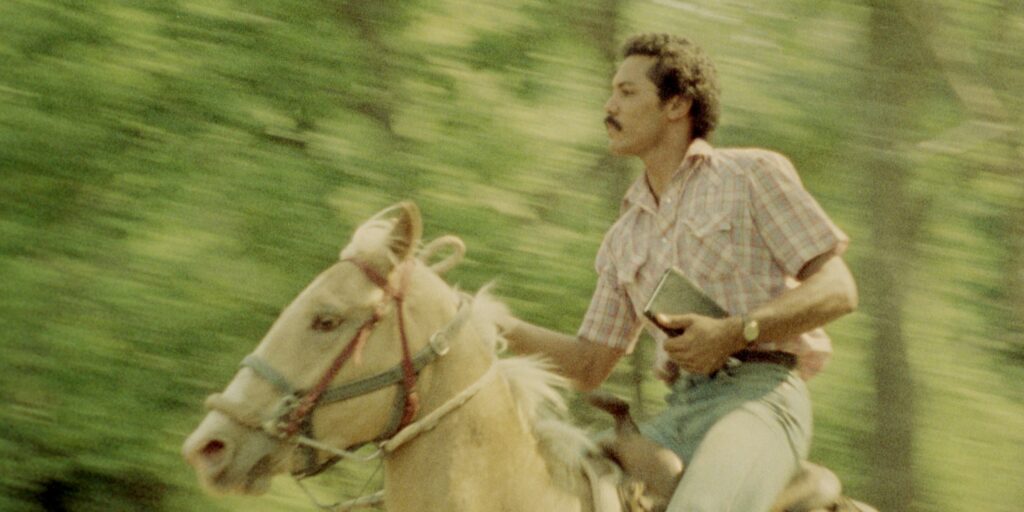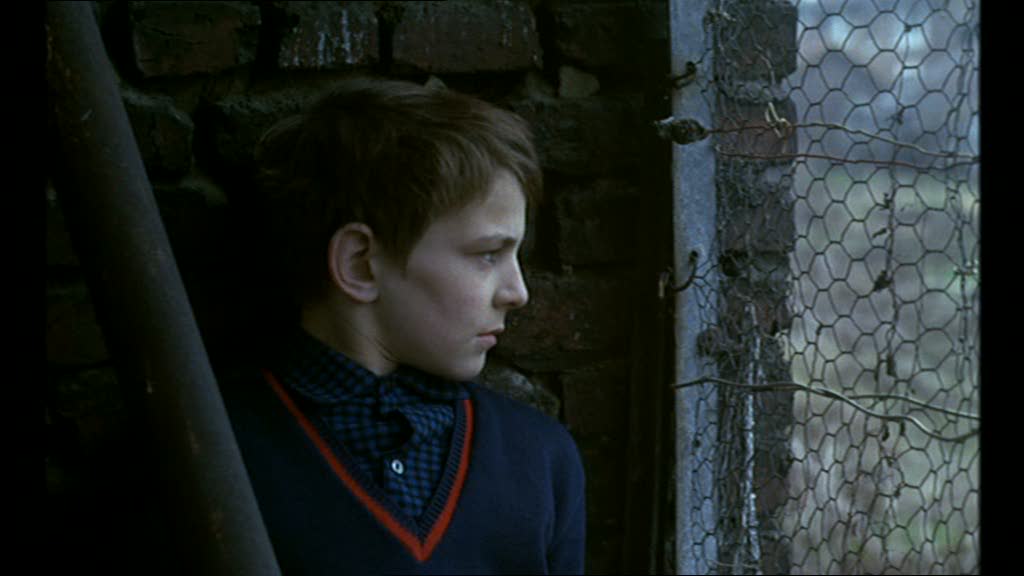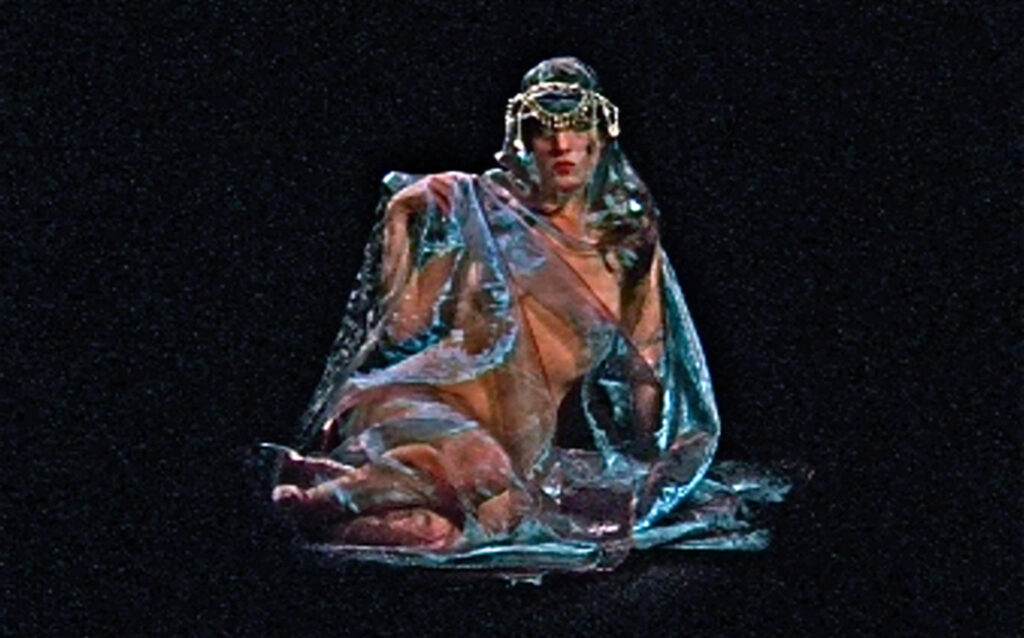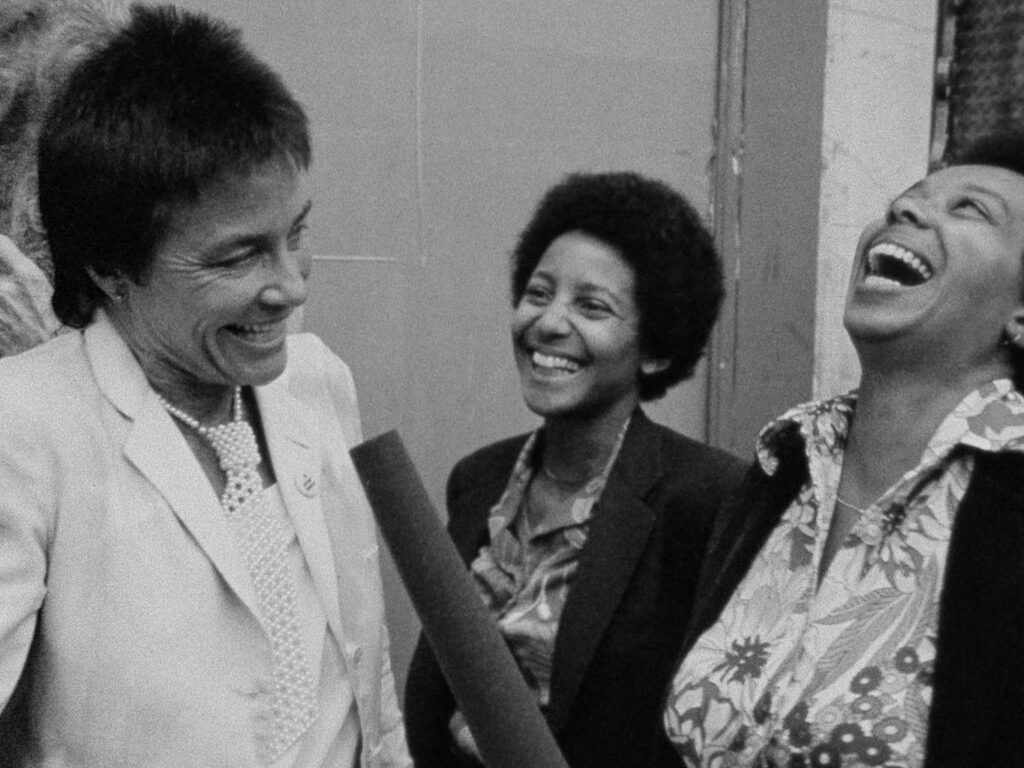Streamers: Summer Criterion Picks from Holly Herrick

This week we announced a special member discount on the Criterion Channel, the streaming service to which we are 100% addicted (you can learn more about the partnership and our member discussion series here). For those just starting out on the channel, AFS Head of Film & Creative Media Holly Herrick has some suggestions, including some rare gems, for the months of July and August.
AUDIENCE (1982) by Barbara Hammer
Part of programmer Nellie Killian’s brilliantly curated feminist “Tell Me” series on Criterion Channel, avant garde icon Barbara Hammer investigates the relationship between art and viewer by destabilizing the artist’s perspective, filming her mostly female, mostly queer audience as they engage with Hammer directly about her work. I loved this film not only because it captured a female subculture that is usually absent in films of the era, but because of pandemic-related theater closures, it reminded me what it’s like to present films to a live audience, and to be a member of one.

CANE RIVER (1982) by Horace Jenkins
Part of our line-up for our first member Criterion Channel discussion (more on that here), CANE RIVER was nearly a ‘lost’ film until the negatives were discovered in the archives of DuArt, and the film was released in theaters just before the pandemic. A sun-drenched chronicle of a romance between a young man from a well-to-do Creole community in rural Louisiana, and a striving student from a nearby working-class town, CANE RIVER’s close-up portrait of a rural pocket of Louisiana is spellbinding. Intrepidly weaving together local history and cultural traditions that influence the lives and choices of the characters, the film also insightfully addresses class and colorism through dynamic performances from the two stunning leads (Richard Romain and Tommye Myrick). After you watch it, sign up for our member discussion about the movie.

L’ENFANCE NUE (1968) by Maurice Pialat
While he was a Palme D’or winner, French iconoclast Maurice Pialat was always somewhat of an industry outsider, which may account for the relative obscurity of some of his meticulously crafted films. In this, his film about a troubled foster child, setting, framing and performance convey a hopeless misalignment of behavior and desire. Pialat’s images are vivid, lush and bitter, and the spiritual connection to the films of John Cassavettes and Pier Paolo Pasolini should be noted, as if you like those films, you’ll like his, too. For the moment, nearly all of his work is streaming on Criterion, and L’ENFANCE NUE is a great place to start.

Five Films by Mati Diop
As the niece of Senegalese master filmmaker Djbril Diop Mambéty, French-Senegalese filmmaker Mati Diop was born into “cinema royalty”. She began her own career as an actor and starred in a string of critically-lauded films, such as Claire Denis’ 35 SHOTS OF RUM, while becoming a director in her own right. She debuted her stunning feature film, ATLANTICS (Netflix), at Cannes last year; but prior to this had a body of remarkable short films that express her interest in desire and self-actualization within globalized contexts. Her short film A THOUSAND SUNS is a particularly fascinating cine-experiment —a docu-fiction following the star of TOUKI BOUKI, Magaye Niang, as he revisits his only major role and the alternate narratives he imagines.
I SHOT JESSE JAMES (1949) by Samuel Fuller
The greatest and noblest battle, for Samuel Fuller’s masculine heroes, is a moral reckoning. Fuller examines Robert Ford’s conscience in this beautifully performed anti-western, mining the modern dilemmas imbedded in the historic narrative. Fuller also opens up the stories of the women too often at the fringes of this tale, and finds these female heroes making weighty existential decisions equal to their male counterparts. This is in the Criterion Channel’s Western Noir collection, which includes some other wonderful titles like Fritz Lang’s RANCHO NOTORIOUS and Robert Wise’s BLOOD ON THE MOON.

MY BROTHERS WEDDING (1983) by Charles Burnett
Part of our line up for our first member Criterion Channel discussion (more on that here), MY BROTHER’S WEDDING is the second feature film by legendary ‘LA Rebellion’ independent filmmaker (and AFS Advisory Board member) Charles Burnett. It’s the story of Pierce, who is stuck working for his family’s dry cleaning business in South Central LA, while his successful brother prepares for marriage into an upper middle-class family. Capturing the community and neighborhood in specific detail, the film is a defining portrait of 80s Los Angeles and yet refreshingly contemporary in its comedic and political notes. MY BROTHER’S WEDDING was a major influence on AFS-supported film MISS JUNETEENTH, and that film’s director, Channing Godfrey Peoples, will join the AFS Discussion Club event as a featured speaker.

THE WATERMELON WOMAN (1996) by Cheryl Dunye
Cheryl Dunye’s debut feature is a genuinely hilarious, viciously sharp, insightful and essential comedy of the 90s. Cheryl (played by Dunye herself to low-key comedy perfection), is a very awkward lesbian video store employee and aspiring filmmaker attempting to get her first film off the ground, about a mysterious, uncredited Black actress in early Hollywood. Along the way, she’s stymied by her nagging sidekick, a worsening crush on a white girl, and of course the trials and tribulations of no-budget filmmaking. If your quarantine taste buds are craving brilliant and substantive comedy, put this one on your list. Added bonus—a selection of wonderful short films by Dunye are also currently streaming.

THE WHITE BALLOON (1995) by Jafar Panahi
A great feature of Criterion Channel is the Saturday Matinée series, which are films you can watch with the whole family. Not only are these good choices for young viewers, but they are perfect for multi-generational gatherings and general audiences. A gem of this section is Jafar Panahi’s THE WHITE BALLOON, which claims it’s place in the canon of great movies about children’s inner lives, alongside Satyajit Ray’s PATHER PANCHALI, Ingmar Bergman’s FANNY AND ALEXANDER and Victor Erice’s THE SPIRIT OF THE BEEHIVE. Following a little girl on a quest to buy a goldfish in Tehran, the film exalts childhood innocence and human connection.











